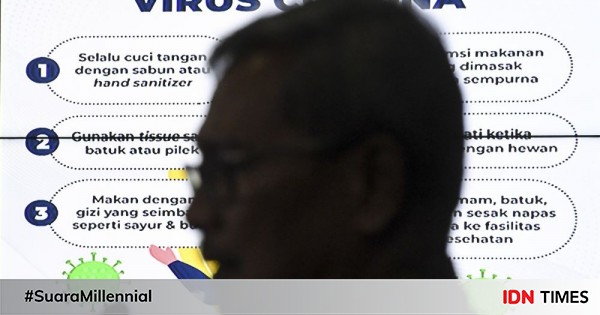In recent days, a number of countries have suspended the use of the AstraZeneca vaccine – despite the fact that the vaccine still receives support from the EU and the World Health Organization.
Concerns about side effects from the coronary vaccine have flared up in recent days after some cases of blood clots were discovered in people who have recently taken the vaccine.
Cases have been reported in Norway, Denmark, Austria and Italy.
Sunday, March 7:
* Austria suspends use of vaccine doses from a specific shipment from AstraZeneca after a 49-year-old woman dies of a blood clot after being vaccinated.
* Estonia, Latvia, Lithuania and Luxembourg also suspend the use of doses from the same party.
* The shipment includes one million doses delivered to 17 EU countries.
Thursday, March 11:
* Denmark suspends use of the vaccine after a 60-year-old woman dies of a blood clot after she was vaccinated. Shortly afterwards, Norway and Iceland do the same.
* The northern Italian region of Piedmont orders a halt in the use of vaccine from a shipment after a teacher dies. The vaccine is still used in the rest of the country.
* AstraZeneca reports: “An analysis of our data has not shown an increased risk of blood clots in the lungs or deep vein thrombosis for any age group, gender, in any consignment or in any country that has used Astra Zeneca’s covid-19 vaccine.”
* The European Medicines Agency (EMA) states that the benefits of the vaccine still outweigh the risks and that it can be used while investigating the cases.
* The EMA further states that only 30 cases of blood clots have been found in a group of almost 5 million vaccinated. The number is not higher than what is seen in the population normally.
* The World Health Organization (WHO) is issuing a similar message. “We should continue to use the AstraZeneca vaccine,” said WHO spokeswoman Margaret Harris.
* British health authorities report that there is no evidence that the vaccine is a cause of illness. In the UK, more than 11 million doses of the vaccine have been given to date.
Friday, March 12:
* It becomes known that a woman in her 30s has died as a result of a brain haemorrhage on Tynset, ten days after she was vaccinated with the coronary vaccine from AstraZeneca. It is currently unknown whether there is a connection between the vaccine and the death.
* Thailand and Bulgaria pause the use of the vaccine.
* India says it will investigate side effects.
Sunday, March 14:
* One of the three health workers who were admitted to Rikshospitalet in Oslo on Saturday after receiving the AstraZeneca vaccine, dies. It is currently unknown whether there is a connection between the vaccine and the death.
* Steinar Madsen, medical director at the Norwegian Medicines Agency, criticizes AstraZeneca’s statements that the vaccine has no connection with the blood clot cases. He emphasizes that this is something you do not yet know. – But we also have no basis for saying that they have nothing to do with the vaccine, says Madsen.
* Ireland and the Netherlands put the vaccine on hold until further notice.
Monday, March 15:
* Germany, France, Italy and Spain temporarily suspend the use of the vaccine until a new EMA recommendation is ready.
* Venezuela announces that it will not approve AstraZeneca vaccine.
* Thailand resumes use of the vaccine after a temporary halt.
* EMA and WHO maintain that vaccination can continue while examining the information and announcing more meetings in the coming days. The EMA announces a possible conclusion and possible measures after an extraordinary meeting on 18 March.
Tuesday, March 16:
* Sweden, Latvia and Cyprus temporarily suspend the use of the vaccine.
* The Lithuanian authorities say they are resuming use of the vaccine after stopping use by a specific batch of vaccine doses.
Sources: BBC, Reuters, Euronews.com, Ritzau, FHI
(© NTB
–


